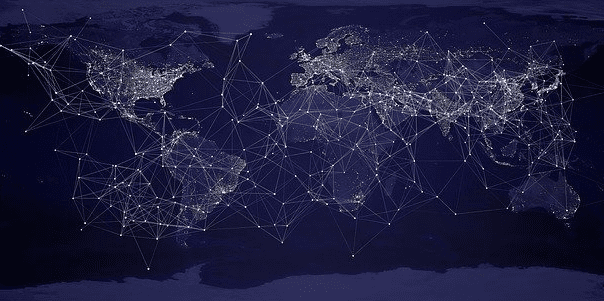It took decades for ETF technology to disrupt Wall Street’s high-fee, low performance mutual fund business. Investors only have a few weeks to adopt the technology needed to protect them from COVID-19’s disruption of financial data supply chains. These data disruptions will likely create information asymmetries that add to market volatility. Only artificial intelligence (AI) that rigorously analyzes thousands of financial filings can keep investors informed and help them navigate these disruptions.
This AI technology, known as the Robo-Analyst, not only provides more reliable and faster financial data updates for investment research, but it also results in:
- Better investment ratings than human analysts and
- Higher quality earnings analysis
Robo-Analyst Remains 100% Operational
COVID-19 is not disrupting our data collection and research. Our research platform leverages technology that allows our team to work from home without any disruption to our processes. We will continue to provide investors with the best earnings analysis during the upcoming quarterly earnings season.
Other Research Firms Face Major Disruptions
COVID-19 is seriously disrupting our competitors in data collection and research.
FactSet (FDS) reported in its latest 10-K that its “ability to gather content, may suffer” due to COVID-19. We expect the same is true of other legacy data providers.
All of these firms rely heavily on offshore data collection centers to power their financial databases. Serious COVID-19-driven lockdowns in India and other countries that house offshore operations are forcing many of the world’s largest banking and financial services institutions to shut down or onshore many core activities like data collection and support.
Work-From-Home Is Not Working
Look no further than Mumbai-based Tata Consultancy Services, one of the largest and most successful outsource consulting firms, for evidence that work-from-home isn’t a perfect solution. The firm has only been able to successfully implement work-from-home for 40% of its employees despite its full effort and focus, according to a report in The Economic Times.
With many of India’s BPO (Business Process Outsourcing) companies unprepared for the logistical, regulatory, and security challenges associated with working from home, they’re asking for special exemptions to allow employees to go to the office despite grave health concerns.
If the exemptions aren’t granted, data collection could grind to a halt right as 1Q20 earnings data is coming out.
Disruptions Could Prevent Collection of and Research on 1Q20 Earnings Data
These lockdowns come at an inopportune time for financial markets. Companies started reporting earnings last week and will start filing 1Q20 10-Qs this week.
Investors who rely on other research firms or data providers may not have access to updated data and will be unable to update their models with 1Q20 data.
H1B Visa Hoarding Is Not The Answer
Could the aforementioned data companies bring these workers back to the United States as a solution? The answer isn’t so simple.
In November of 2015, the New York Times reported that large outsourcing companies (such as Tata Consultancy Services, Infosys, Wipro, Cognizant and Accenture) were gaming the H1B visa system to garner a disproportionate share of the annual visa allocation. In theory, these companies could use these visas to bring offshore workers to the United States and man data collection operations here.
There are two problems with that strategy:
- The U.S. is also on lockdown, so they may not be able to set up such operations.
- There’s likely not enough time to relocate that many people and set up operations, assuming they are deemed “essential services,” before companies start reporting 1Q20 earnings results next week.
Moving the data operations on-shore could be a medium-term solution, but it would likely not be a long-term solution because it would no longer offer the cost-savings of operating offshore.
Uncertainty Raises Risk
While it is clear that the offshore BPO operations are under significant duress, it is not clear how the financial data collection firms are handling it.
In the meantime, there’s a lot of financial data to be collected now as thousands of companies publish earnings releases and 10-Q reports.
There’s been no shortage of data to be collected so far this year, either. From mid February to the end of March, over two-thirds of publicly traded companies filed their annual reports, or 10-K filings, by far the most complicated and data-rich financial filings provided by companies.
Robo-Analyst Research Automation Is the Future
In his case study New Constructs: Disrupting Fundamental Analysis With Robo-Analysts, Harvard Business School professor Charles Wang posits that our Robo-Analyst represents a superior approach to collecting financial data and building models. In Core Earnings: New Data & Evidence, professors Charles Wang, Ethan Rouen and Eric So provide evidence that our Robo-Analyst, indeed, produces superior earnings analysis, which can also be used to make superior earnings estimates.
After all, most investors take for granted that markets operate efficiently, but they are mistaken. As long as investors are willing to "rely on the same bad data", this inefficiency will persist unless, of course, they have no data – which is increasingly likely.
In uncertain times like these, our diligence is of paramount importance.
This article originally published on April 22, 2020.
Disclosure: David Trainer, Kyle Guske II, and Matt Shuler receive no compensation to write about any specific stock, sector or theme.
Follow us on Twitter, Facebook, LinkedIn, and StockTwits for real-time alerts on all our research.
